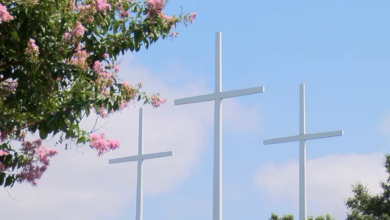Mideast faces frugal Ramadan amid high prices, earthquake destruction

Cairo/Beirut/Amman/Khartoum, Mar 23 (EFE).- The holy month of Ramadan begins Thursday for millions of Muslims across the Middle East amid sky-high cost of living and destruction caused by last month’s earthquake in Syria and Turkey.
While those observing Ramadan are becoming more social than in the previous years ruled by Covid-induced constraints, they will have less food on the table this year.
‘WHAT RAMADAN?’
The traditional celebrations during this month have become a thing of the past in Syria, where 90% of the population live in poverty as a result of a serious economic crisis and a protracted armed conflict with the February 6 deadly earthquakes adding fuel to that fire.
“What Ramadan? We barely bought bread and some essential products. Ramadan is about empathizing with the poor and now we are the poor, we are not the ones who must empathize, it is the world that must do it,” Mohamed, 37, tells Efe.
The Aleppo resident says many people in the northwestern Syrian city are still displaced in the homes of relatives or shelters after the earthquakes, as prices continue to skyrocket “rapidly.”
This year, Mohamed’s family will break their fast on meals prepared from rice, oil and other basic products that come in a food aid box donated once a month by a nearby Christian church.
Like all Syrians, he says, they will be missing the “taste of chicken and meat.”
“I remember we used to have feasts not only for ourselves, but for everyone, but now no one is able to feed himself. And we’re just talking about food, what about the clothes for the children and the little gifts? Or even taking walks? We live in the midst of destruction,” Mohamed adds.
DESSERTS IN INSTALLMENTS
In Egypt, Ramadan will be marked by the severe economic crisis and the continued weakening of the currency which lost almost 50% of its value in just one year.
Rana Abdel Wahab, a dentist and mother of two children, explains that she has to “choose what to buy and only think about the basic needs of the house due to the economic crisis and high prices.”
It was normal to find lights and handmade decorations hung on balconies, buildings and shops in the Cairo neighborhoods but this year, Egyptians needed to save.
Abdel Wahab points out that she had always bought new decorations for the house and lanterns for the children, but she used this Ramadan the paper ones from previous years and preferred “not to hang the lights so as not to consume a lot of electricity.”
Well-known pastry shops have even offered Egyptians to buy typical Ramadan sweets such as Kunafa, made with shredded phyllo dough, in installments, sparking massive controversy over social media.
EMPTY MARKETS AND SOARING PRICES
Sudanese people, who have lived through elevated inflation and instability in recent years that they hope will soon come to an end, used to go to the markets to stock their fridges, but there are no products anymore.
Yasser Mirghani, the president of the Sudanese Society for Consumer Protection, tells Efe: “Now the markets are almost empty due to the state of economic recession and the high prices of basic products, which is reflected in the little movement of purchases.”
In Jordan, citizens have been preparing since the government rose prices in previous months so that “they will not feel the effect,” Ahmed al-Issa, a resident of the northern province of al-Mafraq, says.EFE
ar-hy-az-amo-sr-ijm/smq/jt





